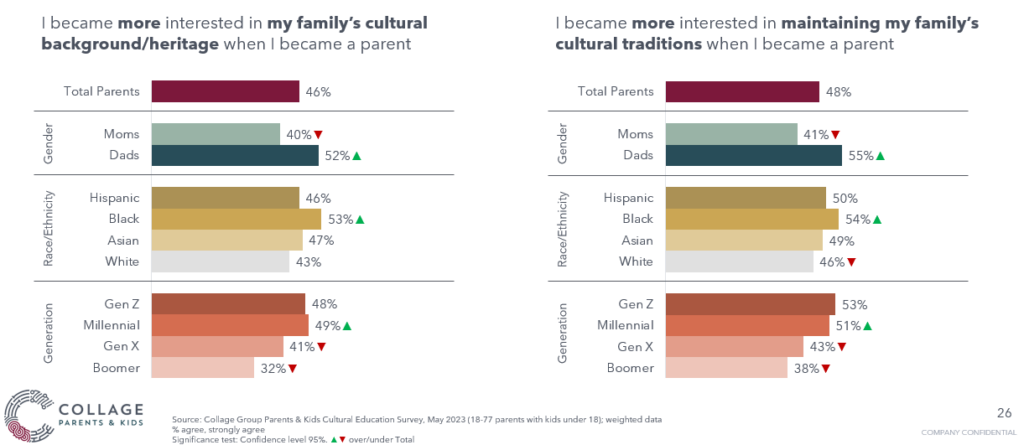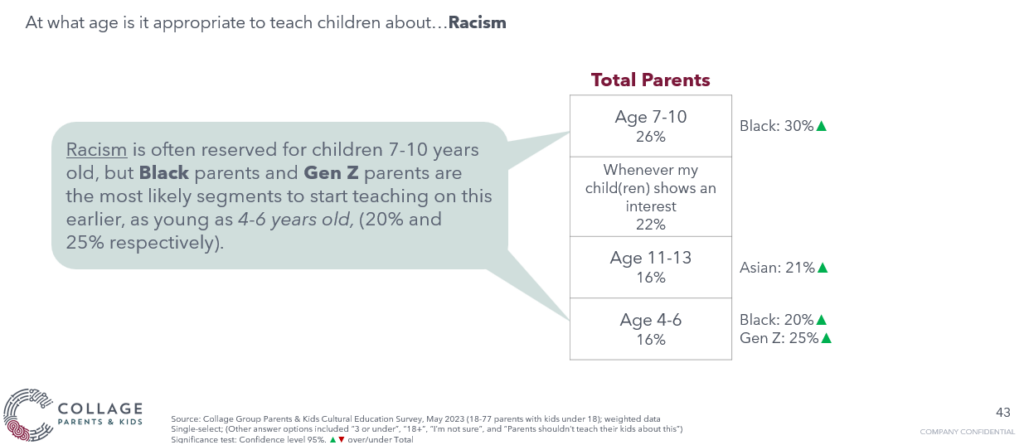Connect with Diverse Parents and Kids on Key Issues and Identity

As America grows more diverse, the landscape of parenting is shifting. Culture, diversity, and identity are becoming a greater focus among parents who want to instill their children with pride in their uniqueness and acceptance of others. But despite the societal progress toward awareness and openness, parenting in today’s polarized world can be contentious. Parents are navigating how to prepare their children to face adversity head-on, and brands must stay abreast of the changing tide to increase trust and relevance, discover actionable marketing strategies across key industries, and build brand loyalty.
Fill out the form for an excerpt from our Connect with Diverse Parents and Kids presentation.
The Big Picture:
- There’s no such thing as “adult problems” and “kid problems”. Kids are good listeners and pick up on today’s complex problems. For parents, it’s now less about sheltering their kids and more about preparing them to face adversity head-on.
- Today’s kids are thinking globally. As the U.S. continues to diversify, culture and identity are increasingly considered as pride points. For kids today, cultural awareness is cooler than ever.
This powerful study explores three key topics as they relate to culture, diversity, and identity: 1) Demographic & Societal Context; 2) Issues & Concerns; and 3) Diversity & Identity Education on culture, race, gender, and LGBTQ+ identities. And we unpack variations in parental attitudes and behaviors across gender, race/ethnicity, generation, and sexuality.
Key Insight #1: Culture
Know This:
Becoming a parent is a strong motivator to want to learn more about cultural background and maintain family traditions, especially among multicultural parents, younger parents, and dads. But many parents also want to teach their kids about other cultures, too.

Do This:
- Cater to new parents’ value-shifts and stronger interest in culture by framing your products as “cultural gateways” for them to explore their own—or other—cultures.
Key Insight #2: Race
Know This:
Racism is the #2 concern among children of all age groups, but especially Black children. For this reason, many parents say it’s appropriate to teach kids about racism at a young age, most commonly at 7-10 years old, but for Black and Gen Z parents, even younger, at age 4-6.

- Be a role model for parents and children in breaking the boundaries of gender norms.
- Enable expression by showing parents how they can use your brand’s products to encourage their children’s individuality and boost their confidence.
This blog includes a small sample of the deep cultural intelligence available to our members. Contact us to learn how you can unlock full access to our Cultural Intelligence Engine.